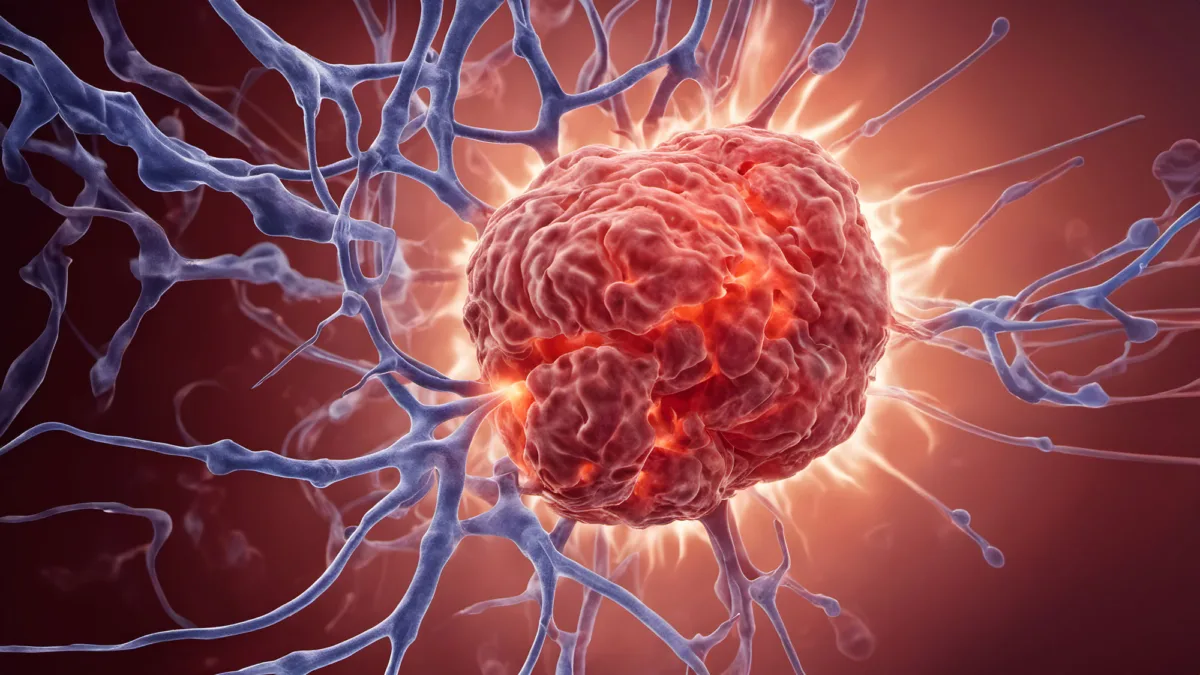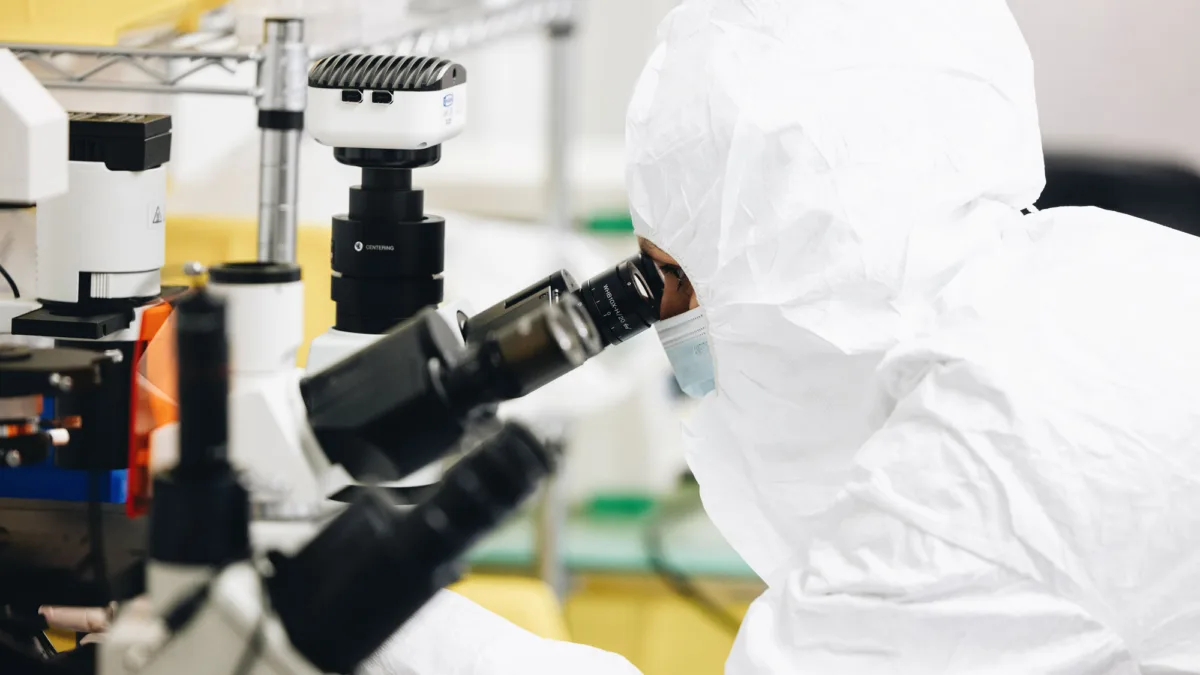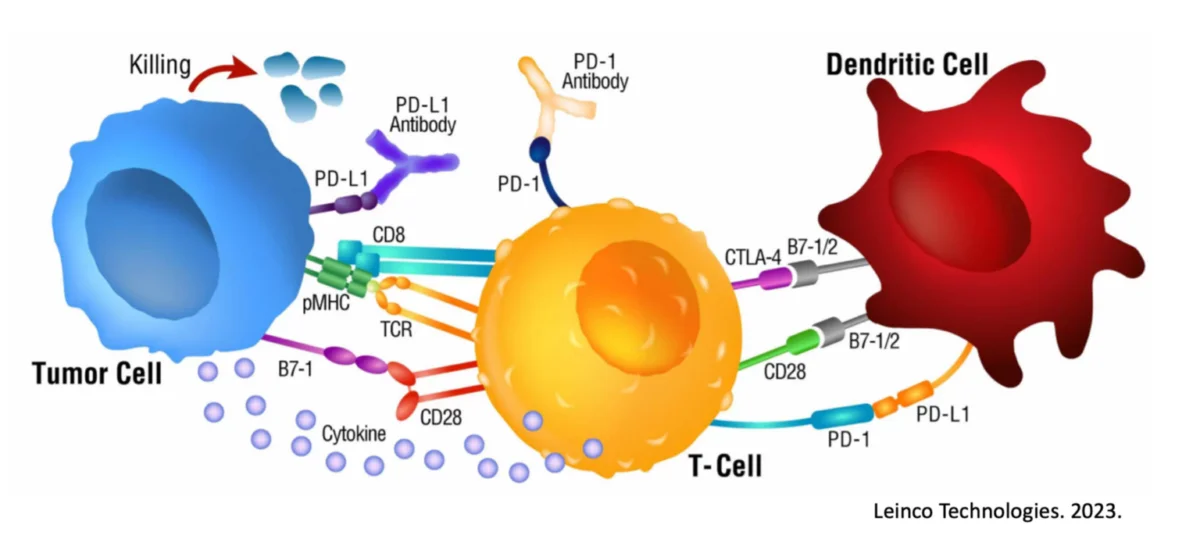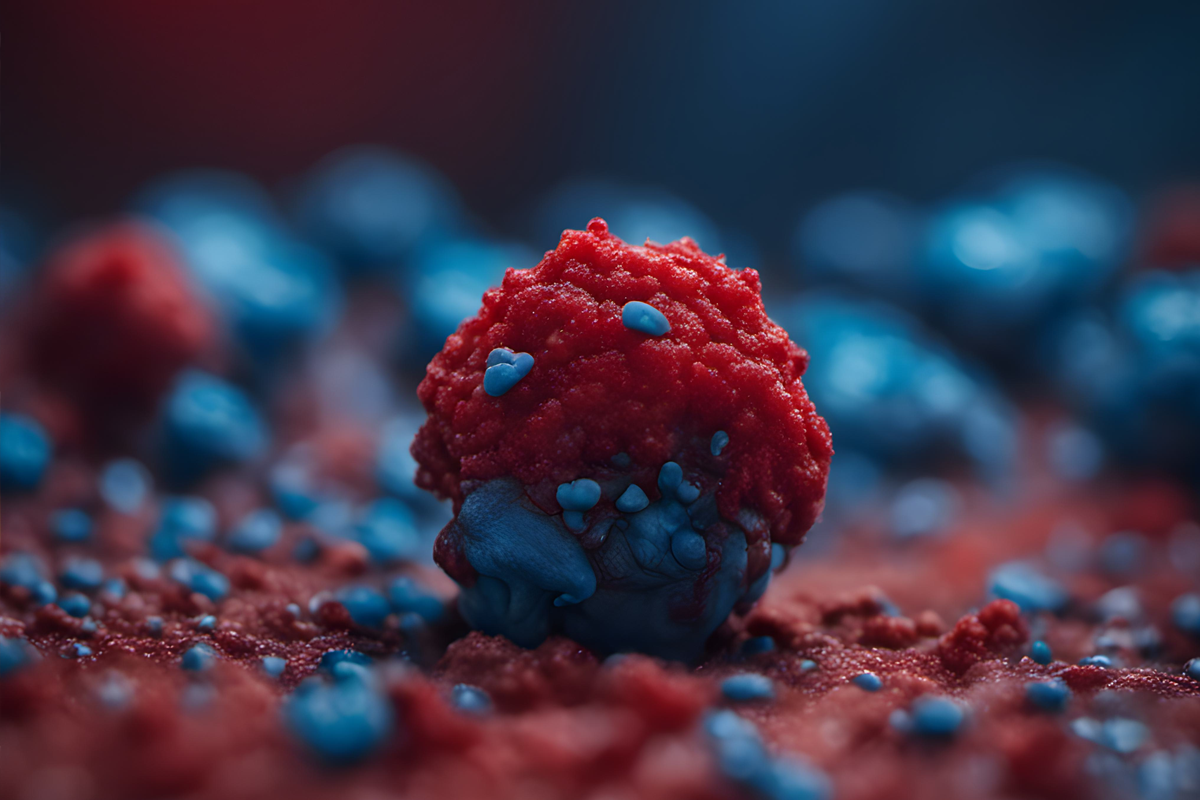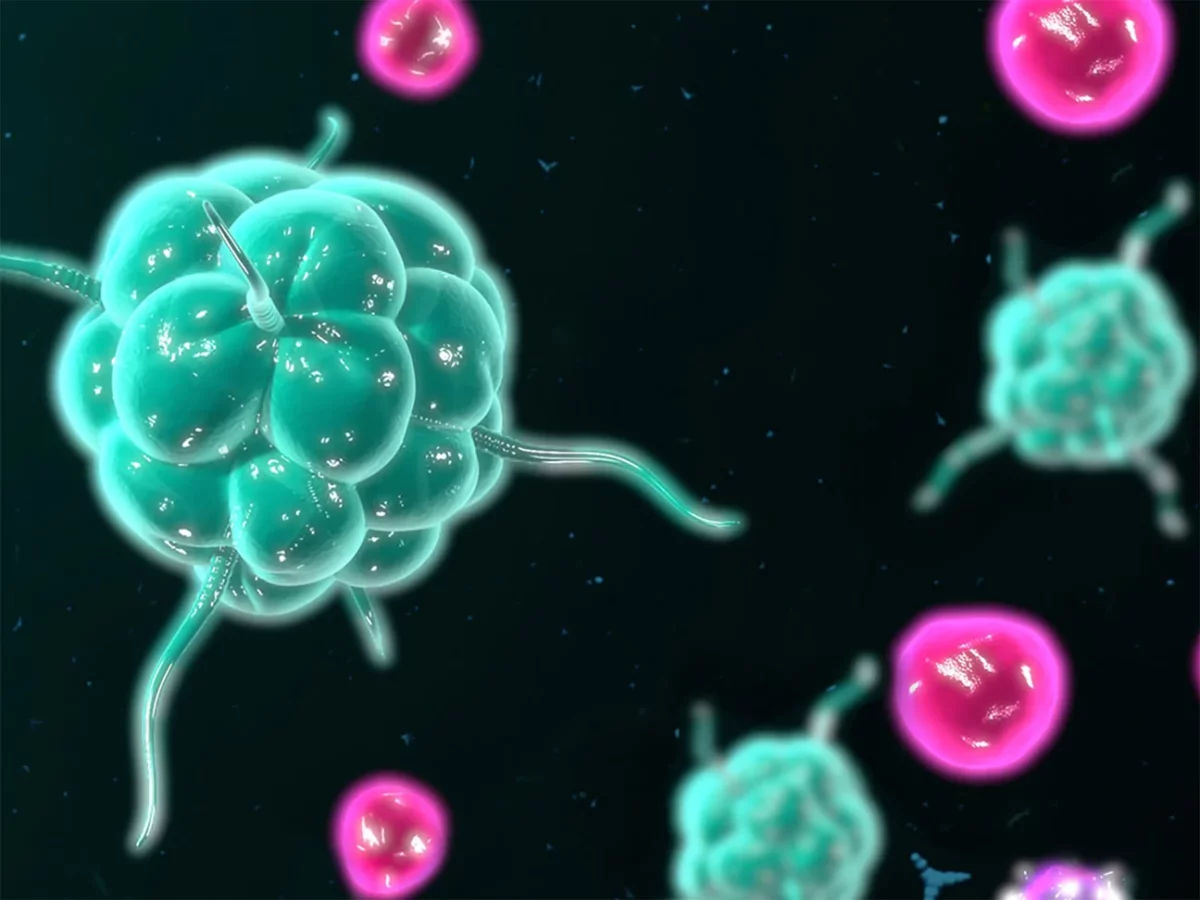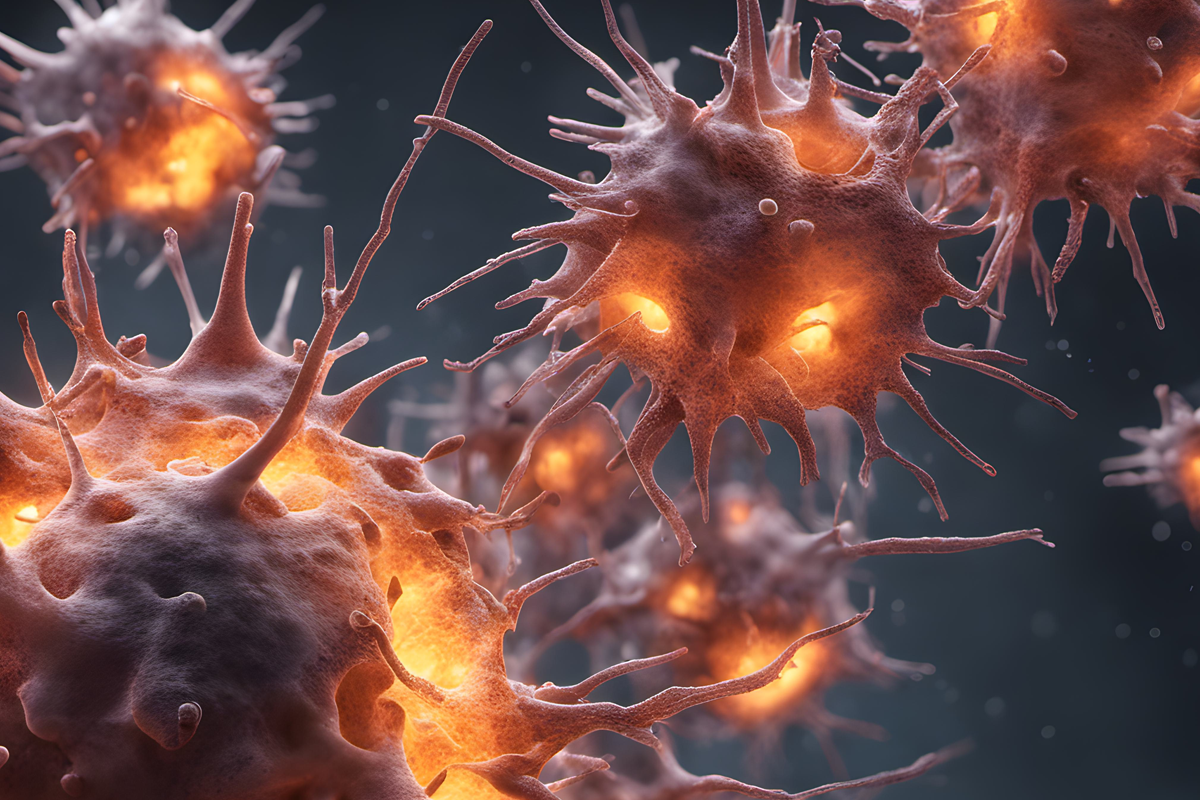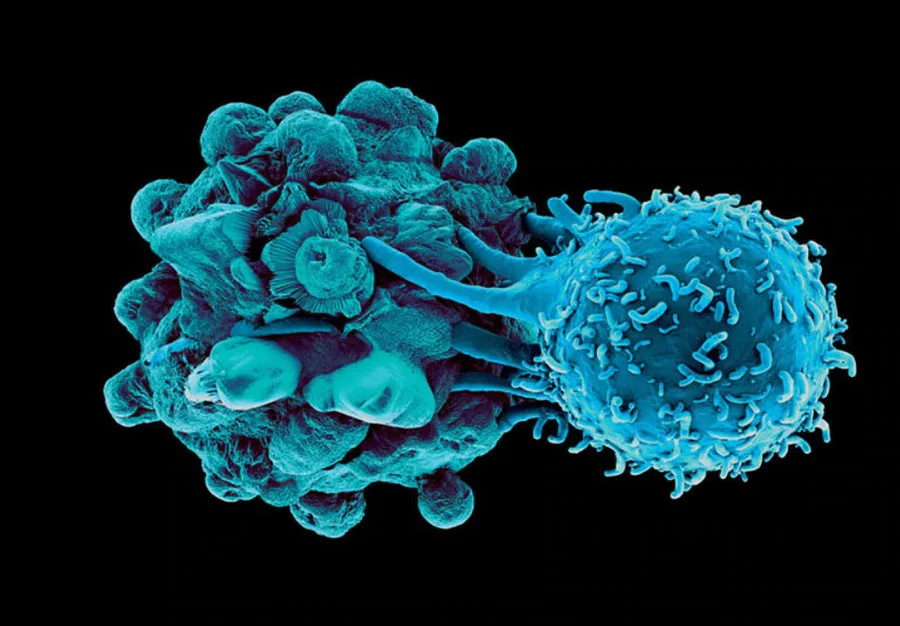Advances in Treating Triple-Negative Breast Cancer
Triple-negative breast cancer is a unique form of breast cancer lacking in typical receptors found on these breast cells. Despite its difficulty in treating, the Immunocine Cancer Center’s treatment has had demonstrated success in treating triple-negative cancer patients.

Overview of Triple-Negative Breast Cancer
Triple-negative breast cancer is a unique form of breast cancer lacking in typical receptors found on these breast cells. Specifically missing are the receptors for Estrogen, Progesterone, and Human Epidermal Growth Factor (HER2) (hence the name “Triple-negative”)1.
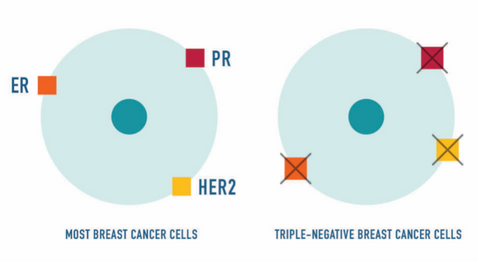
In several forms of breast cancer, it is one or more of these factors driving tumor growth. However, if the cells within the tumor are growing beyond control irrelevant to these factors, treatment becomes a much trickier proposition. Unfortunately, this form of breast cancer now represents 15-20% of the cases with a 5-year survival rate below 15% for metastasized cases2.
Therefore, it is imperative that we understand the mechanisms which allow for this tumor progression and how we can wisely combat it with the latest in the field of cancer immunotherapy.
Recent Progress in Treating Triple-Negative Breast Cancer
Fortunately, recent studies published in the New England Journal of Medicine displaying some encouraging results with checkpoint immunotherapy for triple-negative breast cancer.
Compared to placebo, immune activation before operations allowed for increased clearance of tumor cells at the time of surgery (by about 14%) without much alteration in side effect profile3, and median survival seemed to be extended4. Now, this does not speak to long-term results or indicate a “cure” has been found, but rather excites us that the immune system is capable of identifying and attacking these seemingly invisible cancer cells.
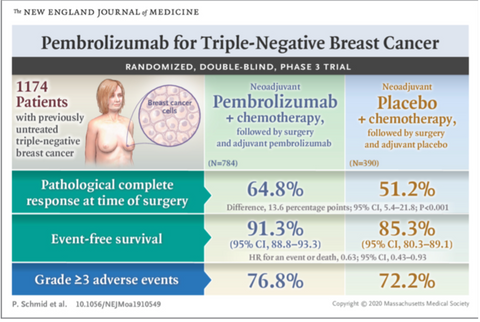
Of course, while immune checkpoint inhibitors have been effective at “boosting” the immune system and providing some benefit, they are not ideal for engendering a truly targeted, robust, and memorable immune response.
For those, we ideally need to channel into the normal physiological pathways the immune system operates and go from the ‘top-down.’ By this, we mean the Dendritic Cells (the immune system “generals”) down to the killer T cells (the immune system “soldiers”).
Dendritic Cell Treatments for Triple-Negative Breast Cancer
As research has continued, there have been reports in which Dendritic Cells have effectively been used to launch a triple-negative breast cancer immune response5,6, even with recent evidence of some levels of success in early patients7,8.
In fact, so important are Dendritic Cells to the potential overcoming of triple-negative breast cancer, some therapies are more focused on simply trying to get more functional Dendritic Cells into the area of the cancer in the first place9. And of course, it is critically important to utilize the right kind of Dendritic Cells as well10.
Treating Triple-Negative Breast Cancer at the Immunocine Cancer Center
If you or someone you know has been hit with a diagnosis of triple-negative breast cancer, please let us know. Immunocine may be able to help as we have seen success in treating triple-negative breast cancer.
Not only has science come a long way in the past 20 years, but the Immunocine scientific teams have in-house experience of over a decade of research into our unique Dendritic Cell Therapy and triple-negative breast cancer cases and studies.
References
Medina, M, et al. Triple-negative breast cancer: A review of conventional and advanced therapeutic strategies. Int J Environ Res. 2020.
Nahlah Almansour. Triple-Negative Breast Cancer: A Brief Review About Epidemiology, Risk Factors, Signaling Pathways, Treatment and Role of Artificial Intelligence. Front. Mol. Biosci. 2022.
Schmid, P, et al. Pembrolizumab for early triple-negative breast cancer. NEJM. 2020.
Schmid, P, et al. Atezolizumab and nab-paclitaxel in advanced triple-negative breast cancer. NEJM. 2018.
Huang, Y, et al. Dendritic cells-based vaccine to inhibit triple-negative breast cancer cells proliferation. Clinical Oncology. 2016.
Zhang, P, et al. Preparation of triple-negative breast cancer vaccine through electrofusion with day-3 dendritic cells. Plos One. 2014.
Santisteban, M, et al. Final results regarding the addition of dendritic cell vaccines to neoadjuvant chemotherapy in early HER2-negative breast cancer patients: clinical and translational analysis.Ther Adv Med Oncol. 2021.
Jirapongwattana, N, et al. Mesothelin‑specific T cell cytotoxicity against triple-negative breast cancer is enhanced by 40s ribosomal protein subunit 3‑treated self‑differentiated dendritic cells. Oncol Rep. 2022.
Boucher, Y, et al. Bevacizumab improves tumor infiltration of mature dendritic cells and effector T-cells in triple-negative breast cancer patients. Nature Precision Oncology. 2021.
Lee, H, et al. CD11c-positive dendritic cells in triple-negative breast cancer. In vivo. 2018.
READ THIS NEXT
Inflammation in Cancer
In today’s world, chronic inflammation is an ever-present challenge linked to serious diseases, notably cancer. However, the paradox arises when we consider immunotherapy—a treatment harnessing inflammation to combat cancer. The key to understanding this complex interplay lies in precise “targeting” of the immune system’s arsenal. While chronic inflammation can fuel cancer, abandoning it entirely …
Read MoreUnraveling the Mystery of Cancer: A Journey through Basics and Advancements
Cancer, a word that evokes fear and uncertainty, has long been one of humanity’s most formidable adversaries. It is a complex group of diseases characterized by the uncontrollable growth and spread of abnormal cells in the body1. In this post, we will delve into the fundamentals of cancer, its interaction with the immune system, its …
Read MoreUnderstanding Cancer Markers: Unveiling the Promise and Limitations
Cancer, a complex group of diseases characterized by uncontrolled cell growth, has been a significant challenge for medical science. Over the years, researchers have developed various tools and techniques to diagnose, monitor, and treat different types of cancers. One such tool that has gained prominence in the realm of cancer detection and management is the …
Read More
